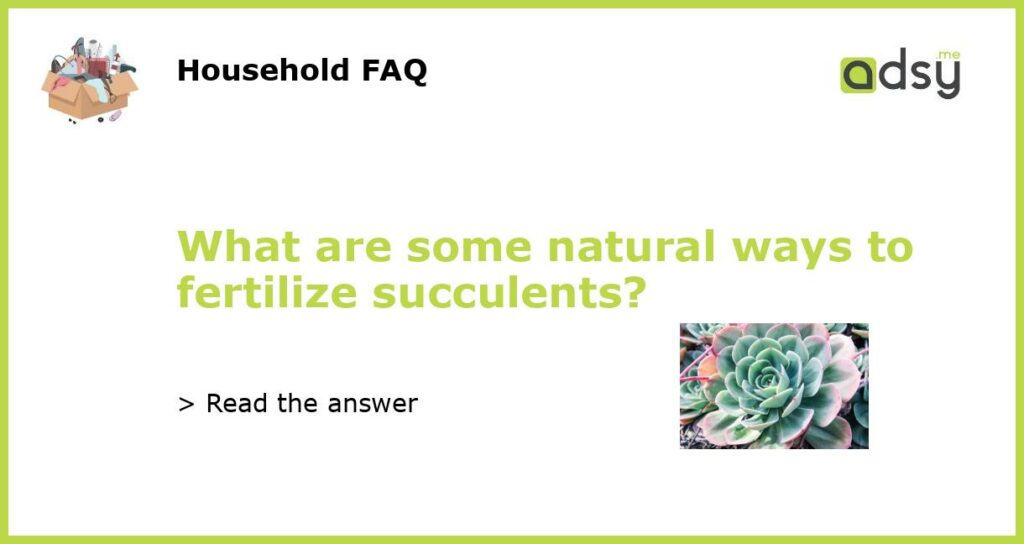Understanding Succulents’ Nutritional Needs
Succulents are known for their ability to store water in their leaves, stems, and roots, allowing them to thrive in arid conditions. However, these plants still require nutrients to grow and thrive. Understanding their nutritional needs is essential in finding natural and effective ways to fertilize them.
Using Compost
Compost is an excellent natural fertilizer for succulents. It contains a rich blend of organic matter that slowly releases nutrients into the soil as it decomposes. Mixing compost into the potting soil or applying it as a top dressing can provide a steady source of nutrients for your succulents.
You can create compost at home by collecting kitchen scraps, yard waste, and other organic materials. Allow them to decompose over time, turning the pile occasionally to speed up the process. Once the compost is ready, apply it around the base of your succulents, being careful not to cover the leaves.
Using Organic Liquid Fertilizers
Organic liquid fertilizers can provide a quick nutrient boost to your succulents. These fertilizers are derived from natural sources such as seaweed, fish emulsion, and bone meal. They are typically diluted in water and can be applied directly to the soil or sprayed onto the leaves.
When using liquid fertilizers, it is important to follow the instructions on the package and avoid over-fertilizing. Succulents have low nutritional requirements, and too much fertilizer can lead to excessive growth or even damage to the plant.
Incorporating Epsom Salt
Epsom salt, also known as magnesium sulfate, can be used to provide magnesium to your succulents. Magnesium is an essential nutrient that helps plants produce chlorophyll and use other nutrients effectively.
To use Epsom salt as a fertilizer, simply dissolve one tablespoon of Epsom salt in one gallon of water and water your succulents with this solution. This can be done once a month during the growing season.
However, it is important not to overuse Epsom salt, as excessive magnesium can harm your succulents. Always follow the recommended dosage and frequency when using any fertilizer, including Epsom salt.
Opting for Natural Pest Control
Pests can negatively impact the health of your succulents, hindering their growth and development. In some cases, pesticides may be necessary to control pests. However, natural pest control methods should be considered first.
For instance, beneficial insects like ladybugs and lacewings can help control aphids and other common succulent pests. Attracting these insects to your garden can be done by planting flowers like daisies, marigolds, and yarrow.
If pests still persist, you can try making your own organic pest control sprays using ingredients like neem oil or garlic oil. These natural sprays can help deter pests without harming your succulents or the environment.






